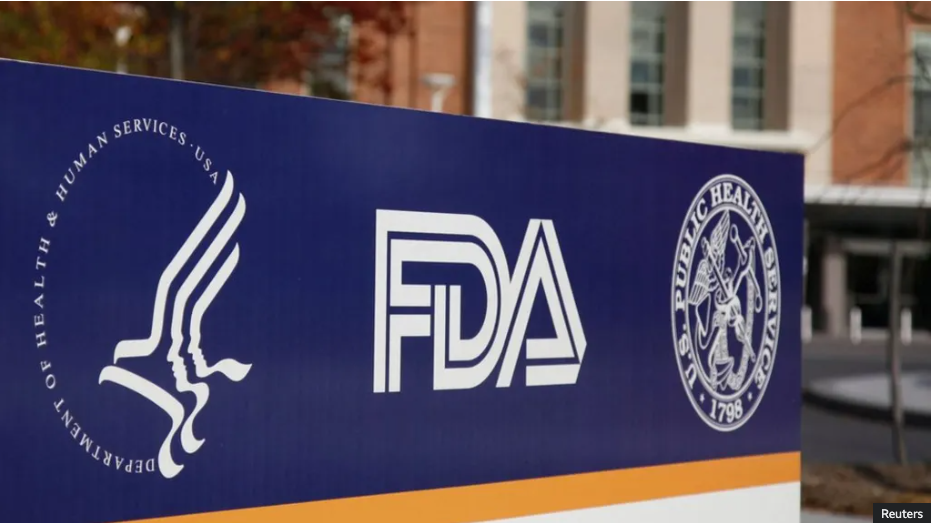June 17th – June 24th, 2022
Cognitive Behavioral Therapy (CBT) to Stop Cannabis in First-Episode Psychosis (FEP) Patients
Specific CBT treatments may be good interventional strategies to reduce cannabis use severity in FEB cannabis consumers, a new study suggests.
Despite potentially holding many therapeutic disease applications, cannabis use can also lead to negative outcomes. Increasing evidence indicates that daily cannabis use as well as consumption of high-potency cannabis strains can augment the risks of developing non affective psychotic disorders, specifically in individuals with pre-existing vulnerability and history of familial psychosis. [1] Along those lines, at a rate of 64%, cannabis is the most commonly used substance in first-episode psychosis patients (FEP), of which half developed a cannabis use disorder (CUD). [2] Additionally, studies have shown that cannabis can have a negative impact on the clinical and functional outcomes of FEP patients, who are at greater risks of having increased severity of psychotic symptoms, poor adherence to treatments, and higher risk of relapse and hospitalizations. [3],[4],[5] While stopping cannabis or cannabis cessation (CC) have shown some improvement in clinical and functional outcomes for FEP patients, there is little evidence regarding effective specific interventions.
Gonzalez-Ortega et al., aimed to investigate the use of specific cognitive behavioral therapy (CBT) for cannabis cessation (CBT-CC) compared to treatment as usual (TAU) in FEP patients using cannabis. [6] They used a single-blind, 1-year randomized controlled trial in which 34 patients received CBT-CC (i.e., specific individual CBT for CC divided in three parts in addition to pharmacological treatment prescribed by psychiatrist) and 31 patients received TAU (i.e., pharmacological treatment prescribed by psychiatrist and psychological therapies involving psychoeducation and CBT). They found that the CBT-CC group had a greater decrease in cannabis use severity and positive psychotic symptoms over time as well as a greater improvement in functioning at post-treatment compared to TAU. Additionally, the CBT-CC group also had a faster treatment response in reducing cannabis use, anxiety, and improving psychotic symptoms compared to patients receiving TAU.
The authors concluded: “The results of this study suggest that early intervention based on a specific CBT program for cannabis cessation, that combines therapeutic strategies aimed at addressing both mental and addictive disorders for patients with FEP and cannabis use comorbidity, may be effective in reducing the cannabis use severity, in addition to improving clinical and functional outcomes of FEP patients.”
Stigma Around Cannabis Use
Survey results showed that UK participants were comfortable about sharing their medical cannabis treatments to friends, family, and medical professionals but were afraid of what the police or criminal just system had to say.
With the increased number of countries legalizing cannabis for medical and recreational uses, it is important to determine whether the stigma around its use is changing. Evidence indicates that stigma around cannabis can reduce utilization of healthcare services and can potentially negatively impact treatment by leading to chronic stress and anxiety. [7],[8]Additionally, reports from countries have shown that patients may not disclose use of cannabis-based medicinal products (CBMPs) due to fear to being labelled as addicts, “pothead”, or “stoner” and thus can place them at risks for potential drug-drug interactions. [9]
To further understand the perceived stigma of patients undergoing treatment with CBMPs, a group of UK researchers gathered information from 450 participants. [10] Survey results showed that most participants were comfortable telling friends, family, and medical professionals about their treatment. However, around 40% and 30% of participants felt that healthcare professionals and society, respectively, were very approving or somewhat approving of their CBMPs prescription. Finally, about half were afraid of what the police or the justice system may think about their treatment.
The authors concluded: “This study highlights that there is a high prevalence of perceived stigma towards patients treated with CBMPs from society, government officials, medical professionals, and the criminal justice system. Reduction in perceived stigma would likely increase appropriate access to CBMPs, as well as providing auxiliary benefits… Future work should be undertaken to explore strategies to reduce perceived stigma at an individual and community level to avoid discrimination of patients, likely increasing appropriate access.”
Medical Cannabis Dispensary Opens in Houston: A First!
Patients with a medical cannabis prescription will be able to pick up cannabis-based products.
Texas Original, the only legal medical cannabis producer in the State of Texas, has opened a new location in Houston. According to state laws, the shop will only be able to sell medical cannabis products with less than 1% Δ9-tetrahydrocannabinol (Δ9-THC) to restricted patients under Texas Compassionate Use Program (e.g., autism, cancer, epilepsy, PTSD…) in the form of gummies or tinctures. [11],[12]
CEO Morris Denton said: “This is a monumental step forward for medical cannabis access in Houston and across the state of Texas. Patients in one of the most populated cities in the country can now locally pick up their life-changing medication five days a week…Reliable and convenient access to medicine is what all patients deserve—we’re proud to deliver on that promise for Houstonians.” [13]
One of the caveats is that the merchandise cannot be stored in-house overnight and therefore must be brought back and forth from Austin daily.
Update on Medical Cannabis Prescriptions in Switzerland
This will increase and facilitate patients to receive medical cannabis products.
Starting August 1st, 2022, Switzerland will ease out regulations for their medical cannabis patients which will enhance access. In this way, this will allow cannabis to be prescribed for medical reasons without the authorization of the federal health authorities, which was a lengthy and costly process. [14] However, medical cannabis products must be licensed and contain less than 1% of Δ9-tetrahydrocannabinol (Δ9-THC).
Recreational cannabis sale and consumption remains illegal.
References
[1] Di Forti M, Quattrone D, Freeman TP, et al. The contribution of cannabis use to variation in the incidence of psychotic disorder across Europe (EU-GEI): a multicentre case-control study. Lancet Psychiatry 2019;6(5):427-436. DOI: 10.1016/S2215-0366(19)30048-3.
[2] Oluwoye O, Monroe-DeVita M, Burduli E, et al. Impact of tobacco, alcohol and cannabis use on treatment outcomes among patients experiencing first episode psychosis: Data from the national RAISE-ETP study. Early Interv Psychiatry 2019;13(1):142-146. DOI: 10.1111/eip.12542.
[3] Schoeler T, Petros N, Di Forti M, et al. Effect of continued cannabis use on medication adherence in the first two years following onset of psychosis. Psychiatry Res 2017;255:36-41. DOI: 10.1016/j.psychres.2017.05.009
[4] Hasan A, von Keller R, Friemel CM, et al. Cannabis use and psychosis: a review of reviews. Eur Arch Psychiatry Clin Neurosci 2020;270(4):403-412. DOI: 10.1007/s00406-019-01068-z.
[5] Schoeler T, Petros N, Di Forti M, et al. Effects of continuation, frequency, and type of cannabis use on relapse in the first 2 years after onset of psychosis: an observational study. Lancet Psychiatry 2016;3(10):947-953. DOI: 10.1016/S2215-0366(16)30188-2
[6] González-Ortega I, Echeburúa E, Alberich S, Bernardo M, Vieta E, de Pablo GS, González-Pinto A. Cognitive Behavioral Therapy Program for Cannabis Use Cessation in First-Episode Psychosis Patients: A 1-Year Randomized Controlled Trial. Int J Environ Res Public Health. 2022 Jun 15;19(12):7325. doi: 10.3390/ijerph19127325. PMID: 35742573.
[7] Piper BJ, DeKeuster RM, Beals ML, et al. Substitution of medical cannabis for pharmaceutical agents for pain, anxiety, and sleep. J Psychopharmacol 2017;31(5):569-575. DOI: 10.1177/0269881117699616.
[8] Luque JS, Okere AN, Reyes-Ortiz CA, Williams PM. Mixed methods study of the potential therapeutic benefits from medical cannabis for patients in Florida. Complement Ther Med 2021;57:102669. DOI: 10.1016/j.ctim.2021.102669.
[9] Bottorff JL, Bissell LJ, Balneaves LG, Oliffe JL, Capler NR, Buxton J. Perceptions of cannabis as a stigmatized medicine: a qualitative descriptive study. Harm Reduct J 2013;10:2. DOI: 10.1186/1477-7517-10-2
[10] Troup LJ, Erridge S, Ciesluk B, Sodergren MH. Perceived Stigma of Patients Undergoing Treatment with Cannabis-Based Medicinal Products. Int J Environ Res Public Health. 2022 Jun 19;19(12):7499. doi: 10.3390/ijerph19127499.
[11] https://texasoriginal.com/, assessed on June 23, 2022
[12] https://texasoriginal.com/texas-compassionate-use-program/, assessed on June 23, 2022
[13] https://www.houstoniamag.com/news-and-city-life/2022/06/cannabis-dispensary-heights-houston, assessed on June 23, 2022
[14] https://lenews.ch/2022/06/24/cannabis-far-easier-to-prescribe-in-switzerland-from-1-august/, assessed on June 23, 2022






